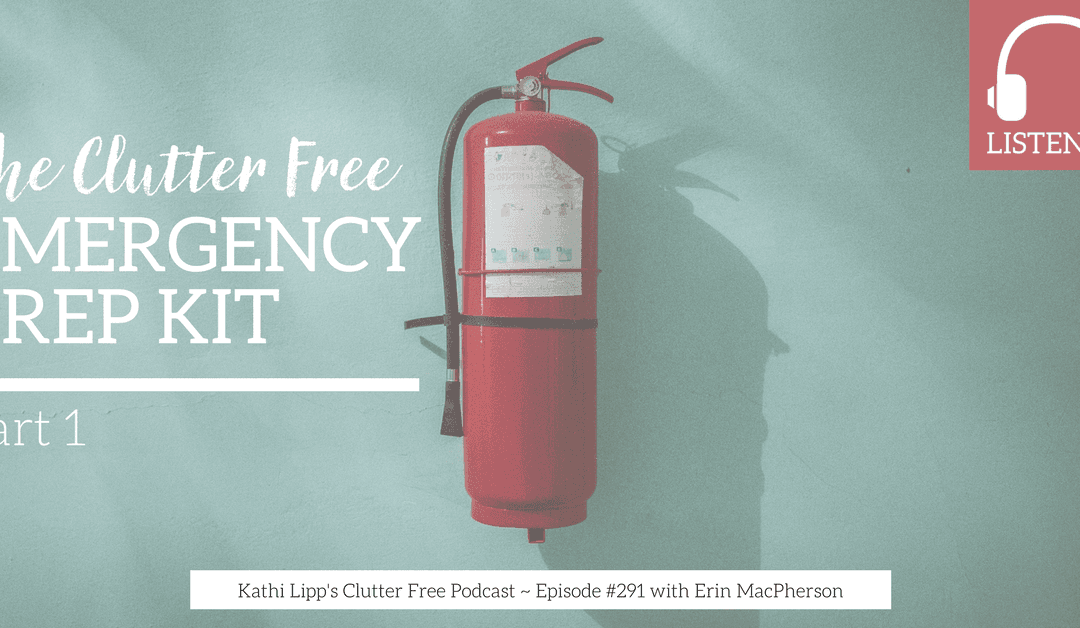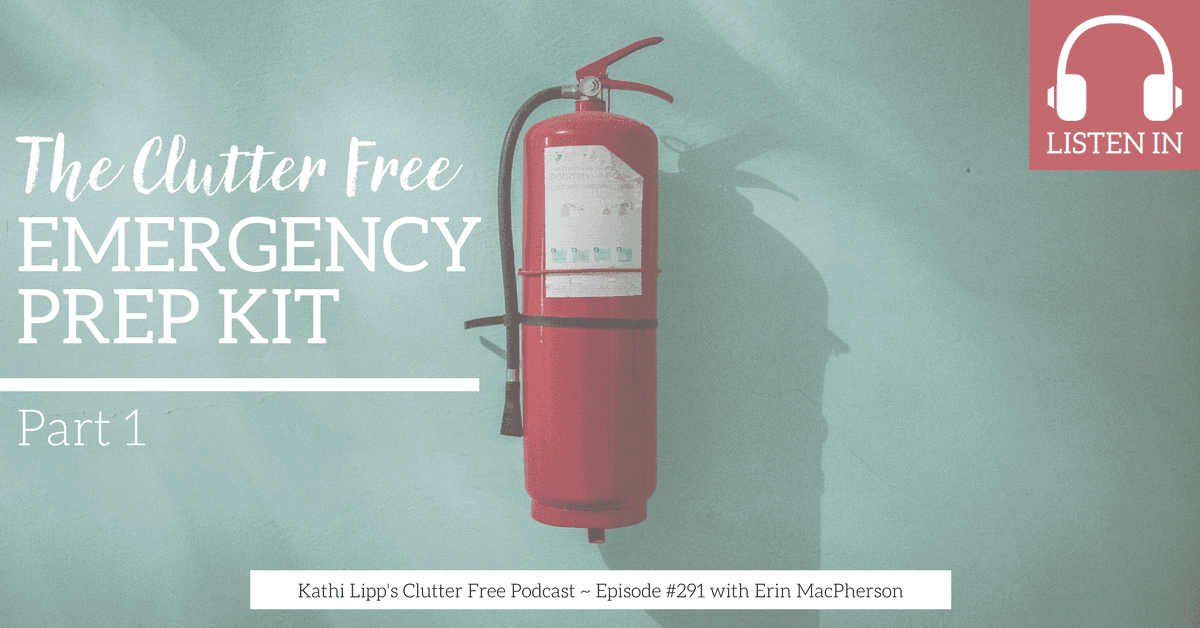
by kathilipp | Mar 5, 2018 | Clutter Free, Recipes, tips and ideas |

1. The Use-it-Up Shelf
In my fridge I have a small shelf that has cheese that has been opened, butter sticks that are cut in half, salami that’s about to expire and salad toppings (shredded carrots, chopped celery, sliced cucumbers) that need to be eaten first. I have put a piece of tape on it that screams “Eat me first!”
The “Use It Up” shelf is a reminder that these things need to be eaten first so that we are not wasting food and money. Why eat cheese that will expire in three months when you have some that will expire in three weeks?
2. Tag Your Pantry
Use blue painter’s tape to mark anything that is going to expire in the next month. Make sure those boxes and cans are towards the front, so you can see what needs to be used up when you’re thinking about what to make for dinner.
3. Meal Plan
And speaking of what to make for dinner, deciding early in the week what you’re going to cook for the rest of the week is one of the best ways to make sure you use all the fresh ingredients you have in your fridge.
4. Store Smart
- Don’t store bananas and apples together (apples quicken the ripening of bananas).
- Store fresh herbs in a jar of water in the fridge.
- Trim asparagus ends and keep them in the fridge in a glass of water (just like you would with a bouquet of flowers) to help them last longer.
- Keep citrus good longer by putting it in a plastic bag in the fridge for up to three weeks.
5. Prep Food as Soon as You Get Home
It’s easy to be optimistic in the store; “Of course we will use all of these vegetables. I will lovingly make salads and veggie soup every night for my family.” But when the dinner crunch is looming, it’s so much easier to grab a frozen pizza and vow to make the salad tomorrow night – until tomorrow night comes….
One of the best decisions we’ve made is to prep our shop. When we get home from the store (or that evening) I will go through and wash and spin salad, grate carrots, slice veggies, hard boil some eggs, and generally prep as much food as I can for the coming days. We are about six times as likely to eat fresh food when it is prepped.
6. You have permission to eat all the veggies/fruit in a day.
My friend, Jenn, told me that her kids didn’t want to eat the fruits and veggies that she bought because they were afraid she was saving them for special recipes. Then there would be soft carrots and limp celery and all that money went to waste. Now Jenn tells her kids “Eat all of the fruits and vegetables in a day, it’s fine!” That way she makes sure they are not going to waste.
We now get some of our fruits and veggies from imperfectproduce.com (Use this link to get $10 off your first order! Our orders turn out to be about $15 every other week.) We love the freshness of all the produce we’ve received. (The reason they are imperfect is usually an unusual shape or size or too large of a crop.) We find ourselves eating up the fresh produce because we get to pick what’s in the box and know that we will use and love all of it.
7. Shop Your Pantry Before You Shop Your Store
We’ve all done it—arrived at the store and then thought to ourselves, “Do we have milk? I can’t remember. I’ll pick some up just in case…” And that “just in case” jug of milk is now the fifth gallon of milk in your fridge.
Before you go to the store, do a double take of what you actually have at your house so you’re not spending your valuable grocery dollars on stuff that you already have.
8. Use Your Freezer
I freeze just about everything except for salad. I am a freezer ninja! But here are a couple of ways I use my freezer that might not have occurred to you:
Soup Bag: I have a freezer bag that I use for any veggies that might be on this side of ripe: leftover salad fixings (sliced mushrooms, onions, celery, carrots, etc.) and then when the bag is full, I sauté everything in there and use it for the base of a veggie soup. It comes out different every time, but it is consistently delicious.
Berry Bag: I love fresh berries and eat a lot of them (on my morning oatmeal, whenever we have company over and I make Instant Pot Cheesecake,) but sometimes even I can’t go through the several types I can buy in a week (strawberry, blueberry, blackberry). So when they are starting to get ripe I’ll throw them into a bag in the freezer and use them to make smoothies or defrost them and make Warm Berry Compote . Both super easy and a great way to not waste a single, beautiful berry.
9. Fall in Love with Cooking Again
As I was writing this article early Saturday morning and thinking through the “Use it Up” principle, I started to feel the guilt of the apples sitting in our fruit bowl that needed to be used up. Since Saturday morning is the only time during the week I cook an actual breakfast (the rest of the week is YOYO – You’re On Your Own) I decided it was now or never. I found a great recipe for Sautéed Apples and put those on top of wheat pancakes for our breakfast. It was a major win.
There is really no better feeling in the world than to cook something from ingredients you already have (and would go to waste if you didn’t use them.)
It’s easy to get into a rut of making excuses for not cooking, but if cooking is something you once enjoyed, it’s time to fall in love with cooking again. Here are some ways to do just that:
- Read great books about people who love to cook. I’m currently listening to Coming to My Senses: The Making of a Counterculture Cook by Alice Waters but have enjoyed so many other books by people who love to cook (professionally and for the ones they love). Here is a list of books I’ve loved to listen to while I cook:
Animal, Vegetable, Miracle: A Year of Food Life by Barbara Kingsolver and Camille Kingsolver
The Dirty Life: A Memoir of Farming, Food, and Love Paperback by Kristin Kimball
My Life in France Paperback by Julia Child? and Alex Prud’homme
- Watch real cooking shows. Yes- it’s fun to see people make life-sized gingerbread houses with fully animatronic witches made out of 4,000 gumdrops. But if you want to get inspired to get into the kitchen, watch real people making real food. I love America’s Test Kitchen (PBS) and always want to run into the kitchen and create after seeing any of their chefs doing their thing.
3. Cook with people you love. This is my best tip. Make an event out of it and get in the kitchen with good food and lovely people.
I would love to hear you ideas about how you’ve reduced food waste in your home.

by kathilipp | Feb 20, 2018 | Clutter Free Podcast, Podcast, tips and ideas |
Erin MacPherson is back with Kathi in a discussion you don’t want to miss. They continue their chat on the topic of preparing a Natural Disaster Kit and the importance of being prepared.
In this episode, Kathi and Erin discuss how thinking ahead can make a world of difference in a disaster or unexpected moment. Thinking now will save time later and it might just save your furry friends. They, of course, share how to do it without collecting clutter.

Erin MacPherson lives in Austin, Texas with her husband Cameron, her sons Joey and Will and her daughter Kate. She is the author of “The Christian Mama’s Guide Series“, a staff writer for Dun & Bradstreet and a freelancer for publications like Thriving Family Magazine, MOPS MomSense, FamilyLife Magazine, Daily Guideposts and BEMag. She blogs about her life, her kids and her faith at ChristianMamasGuide.com.

by kathilipp | Feb 13, 2018 | Clutter Free, Clutter Free Podcast, Podcast, tips and ideas |
Erin MacPherson is back in an episode you don’t want to miss. With so many natural disasters and unplanned emergencies happening this past year in our country, it’s easy to see why a little preparedness will go a long way. Kathi and Erin discuss how and what to put together to make sure you are prepared for those unexpected moments. And of course, how do we do it without collecting clutter.
Erin MacPherson lives in Austin, Texas with her husband Cameron, her sons Joey and Will and her daughter Kate. She is the author of “The Christian Mama’s Guide Series“, a staff writer for Dun & Bradstreet and a freelancer for publications like Thriving Family Magazine, MOPS MomSense, FamilyLife Magazine, Daily Guideposts and BEMag. She blogs about her life, her kids and her faith at ChristianMamasGuide.com.

by kathilipp | Nov 28, 2017 | Christmas, Clutter Free, Podcast, tips and ideas |


It just won’t be Christmas unless . . . you listen in to these tips from Kathi Lipp and Tonya Kubo. Have less clutter and more living at Christmas without the mandatory expectations that wear everyone out. Listen in for tips 8 through 14 in this second installment on the Clutter-Free Christmas series on how to have a Clutter-Free Christmas.
Get Yourself Organized for Christmas – Simple Steps to Enjoying The Season
 Have you lost your Christmas joy? Does the thought of jam-packed malls, maxed-out credit cards, overcrowded supermarkets, and endless to-do lists give you the feeling that maybe Scrooge was on to something?
Have you lost your Christmas joy? Does the thought of jam-packed malls, maxed-out credit cards, overcrowded supermarkets, and endless to-do lists give you the feeling that maybe Scrooge was on to something?
In Get Yourself Organized for Christmas, Kathi Lipp provides easy-to-follow steps to reduce the stress of the holiday season, including tactics for how to
- put together a holiday binder you’ll use year after year
- determine a budget that won’t break the bank
- gather your elf supplies
- get your gift list together (including ideas for various ages and relationships)
- collect your recipes and prep your kitchen
-
By putting into practice Kathi’s tricks and tips, you’ll finally be able to fully enjoy this most wonderful time of the year.

by kathilipp | Nov 21, 2017 | Christmas, Clutter Free, Podcast, tips and ideas |


Get Yourself Organized for Christmas

Have you lost your Christmas joy? Does the thought of jam-packed malls, maxed-out credit cards, overcrowded supermarkets, and endless to-do lists give you the feeling that maybe Scrooge was on to something?
In Get Yourself Organized for Christmas, Kathi Lipp provides easy-to-follow steps to reduce the stress of the holiday season, including tactics for how to
- put together a holiday binder you’ll use year after year
- determine a budget that won’t break the bank
- gather your elf supplies
- get your gift list together (including ideas for various ages and relationships)
- collect your recipes and prep your kitchen
By putting into practice Kathi’s tricks and tips, you’ll finally be able to fully enjoy this most wonderful time of the year.
Don’t let the expectation of having a perfect Christmas steal your joy at Christmas. A budget and a plan does not have to kill Christmas – it mightly actually save it and make it the most special one yet. Listen in as Kathi Lipp and Tanya Kubo discuss 7 tips from the book, “A Clutter-Free Christmas”. Chock full of ideas to help you navigate and plan for Christmas, get “Clutter-Free Christmas” for $5 and pave the way for best Christmas ever.

by kathilipp | Oct 12, 2017 | Clutter Free, tips and ideas |

As always, I had an amazing time at MOMCON (MOPS International’s Convention). We had a booth this year, so I got to meet a lot of moms we may have missed in the past. My favorite part? Hearing their stories from Overwhelmed (I can’t believe how many of you are doing book studies on it!) and Clutter Free.
Clutter Free Kit
And with Clutter Free being part of the MOPS curriculum this year (HUZZAH), I wanted to share with you an amazing idea one group had for a Clutter Free meeting. After showing the Clutter Free video, the leaders gave each mom a kit:
- 3 bags:
– Bag 1 for garbage
– Bag 2 for recycling
– Bag 3 for things to bring into the house
- A package of Clorox wipes (These could easily be broken down into Ziploc sandwich bags to give each mom just a few wipes.)
- A package of Windex wipes (See above.)
- A lint roller
- A Glade Car freshener
Along with the kits, they also provided vacuums and Handi-vacs for the moms to use. Then each mom went to her car or minivan and spent twenty minutes cleaning it out. Awesome, right? The MOPS leaders who tried this idea told me all the moms said it was their favorite activity ever. (Because once you watch a video about decluttering, you want to go and do it NOW.) And the best part? Everyone went home with a sense of accomplishment and fewer French fries in their back seat. Win-win!
Want to clean out your car and get a mini-craft in at the same time?
Make your own car freshener!
All you need is:
- 1 Clothespin
- Essential Oils (Lemon or Peppermint are some great, fresh flavors depending on the time of year.)
Instructions:
1. Dab five drops of essential oil on each side of the clothespin (ten drops total).
2. Clip the clothespin onto the vent. It makes your car smell yummy and fresh without overpowering. I love it.
Clutter Free Events are Being Booked for 2018!

Friends, what sounds better than a girl’s night out? You and me and a few dozen, or hundreds, of your friends!? I would love to come and share the Clutter Free life with you. This is a great reach-out opportunity. To learn more and get your date on the calendar, shoot me an email at bookings@kathilipp.com.





















